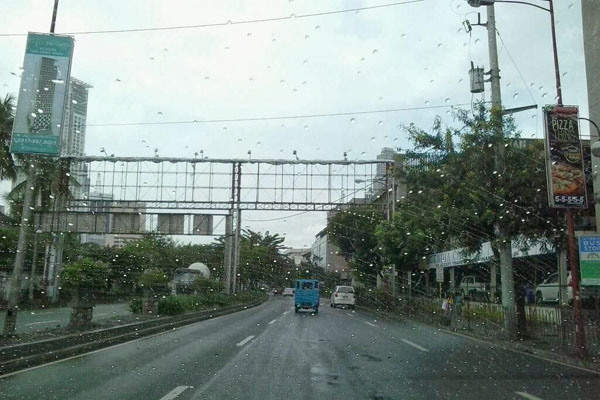Surviving the storm
Former RB librarian Alicia Duell recounts her experiences with Typhoon Hayan.
December 9, 2013
In the early morning of November 7, a horrible natural disaster hit the coasts of the Philippines. Typhoon Haiyan devastated thousands of lives and affected millions. This story begins four months prior when Alicia Duell, former RB Department Chair of Library and Instructional Technology, moved to Manila in the Phillipines with her husband and two daughters.
Choosing Life in Manila
Duell made the move to teach abroad. “This was one of the most difficult decisions I’ve ever had to make,” Duell said. “I loved the students and staff at RB and really enjoyed my work in the library and with technology.”
Even though she loved RB, Duell jumped at the opportunity to travel to Asia.
“I had lived in Honduras and Indonesia previous to coming to RB, so have always had the ‘travel bug’. I also wanted my daughters to have the experience living overseas in order to see how other people live, to make friends with children from all over the world, and to travel to different countries on our school vacations,” said Duell.
Changes were going to be necessary when moving to a new country.
“When you move to a foreign country, you have to adjust your expectations. It’s important to understand that things will be different, and being out of your comfort zone is challenging,” she said.
Eventually, Duell and her family adapted to life in Manila. Oddly enough, some of the changes are what she enjoyed most.
“I love warm weather! I could live in flip flops and shorts, so I am very happy that it is in the 80s and 90s all year long,” she said.
Along with the weather, she enjoyed spending more time with her family.
“We recently had a school break, so we traveled to Thailand for a week. We are also going to Hong Kong and to China later this year,” Duell said.
Learning about Typhoon Haiyan
The week of November 7, Duell along with the rest of the Philippines learned about an incoming storm that was supposed to hit.
“You feel a little nervous, but you also wonder if it will just be a false alarm,” Duell said about when she first learned about the storm. Her and her family both went on with their day, keeping the thought in the back of their minds.
Duell went into school on November 7, expecting a normal work day, only to learn that classes were cancelled.
“We kept close track of the storm, and it seemed pretty clear that it was not going to hit Manila except for some potentially hard rain and wind,” Duell said.
While Duell knew the area she worked in wasn’t going to be directly, she was still worried about the rest of the Philippines.
“Although we knew that other parts of the country were being pummeled by the storm, Manila was dry and partly sunny,” she said.
Regardless, Duell and the community took precautionary measures.
“Our school did roll up some tarps that cover outdoor areas, and the tarp billboards that appear throughout the city were rolled up and secured, leaving only these big black skeletons which was kind of an eerie sight,” Duell said.
Aftermath of the Typhoon
Although there were not any immediate damages done to Duell’s house or town, she witnessed many damages both physical and emotional.
“My maid has not heard from her sister or her nephews since the storm hit, and I know that there are local staff at the school who also are waiting to hear from loved ones. It’s hard to imagine not being able to call or access the Internet, but when the entire infrastructure of an area is destroyed, it can take weeks or months to restore access,” Duell said.
Duell is beyond thankful for knowing that her family and loved ones are safe. She expresses the deepest empathy to those who weren’t as fortunate.
“Although so many physical structures have been destroyed, the worst damage has to be the emotional toll of either losing loved ones or the fear of losing loved ones. I can’t imagine not knowing if my family members were alive or dead two weeks after a disaster,” she said.
Duell hopes this will inspire people around the world to help out not just the places damaged by Haiyan, but places in poverty around the world.
”I hope that this tragedy will spur the Philippines government on to improve infrastructure in these regions so that when disaster strikes, food, medical supplies, and water can get to where they need to go much faster. This is a common problem in developing countries. I also hope that the relief efforts are ongoing, so that people who will be in need for months and even years to come will continue to be supported by the government and by relief agencies,” she said.
How can you help?
Duell provided RB with this link to the UNICEF fund in the hopes that people will donate what they can do help.




